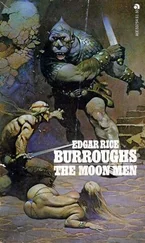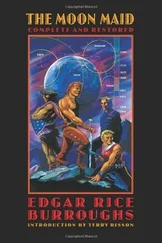Edgar Burroughs - The Red Hawk
Здесь есть возможность читать онлайн «Edgar Burroughs - The Red Hawk» весь текст электронной книги совершенно бесплатно (целиком полную версию без сокращений). В некоторых случаях можно слушать аудио, скачать через торрент в формате fb2 и присутствует краткое содержание. Жанр: Боевая фантастика, на английском языке. Описание произведения, (предисловие) а так же отзывы посетителей доступны на портале библиотеки ЛибКат.
- Название:The Red Hawk
- Автор:
- Жанр:
- Год:неизвестен
- ISBN:нет данных
- Рейтинг книги:3 / 5. Голосов: 1
-
Избранное:Добавить в избранное
- Отзывы:
-
Ваша оценка:
- 60
- 1
- 2
- 3
- 4
- 5
The Red Hawk: краткое содержание, описание и аннотация
Предлагаем к чтению аннотацию, описание, краткое содержание или предисловие (зависит от того, что написал сам автор книги «The Red Hawk»). Если вы не нашли необходимую информацию о книге — напишите в комментариях, мы постараемся отыскать её.
The Red Hawk — читать онлайн бесплатно полную книгу (весь текст) целиком
Ниже представлен текст книги, разбитый по страницам. Система сохранения места последней прочитанной страницы, позволяет с удобством читать онлайн бесплатно книгу «The Red Hawk», без необходимости каждый раз заново искать на чём Вы остановились. Поставьте закладку, и сможете в любой момент перейти на страницу, на которой закончили чтение.
Интервал:
Закладка:
They took me back then to the hut of the old slave and there I slept until early morning, when I was awakened by a great commotion without. Men were shouting orders and cursing as they ran hurriedly to and fro. There was the trampling of horses’ feet, the clank and clatter of trappings of war. Faintly, as from a great distance, I heard, presently, a familiar sound and my blood leaped in answer. It was the war cry of my people and beneath it ran the dull booming of their drums.
“They come!” I must have spoken aloud, for the old slave woman, busy with some household duty, turned toward me.
“Let them come,” she said. “They cannot be worse than these others, and it is time that we changed masters. It has been long now since the rule of the ancients, who, it is said, were not unkind to us. Before them were other ancients, and before those still others. Always they came from far places, ruled us and went their way, displaced by others. Only we remain never changing.
“Like the coyote, the deer and the mountains we have been here always. We belong to the land, we are the land-when the last of our rulers has passed away we shall still be here, as we were in the beginning-unchanged. They come and mix their blood with ours, but in a few generations the last traces of it have disappeared, swallowed up by the slow, unchanging flood of ours. You will come and go, leaving no trace; but after you are forgotten we shall still be here.”
I listened to her in surprise for I never had heard a slave speak as this one, and I should have been glad to have questioned her further. Her strange prophesy interested me. But now the Kalkars entered the hovel. They came hurriedly and as hurriedly departed, taking me with them. My wrists were tied again and I was almost thrown upon Red Lightning’s back. A moment later we were swallowed up by the torrent of horsemen surging toward the southwest.
Less than two hours later we were entering the greatest camp that man has ever looked upon. For miles we rode through it, our party now reduced to the score of warriors who guarded me. The others had halted at the outskirts of the camp to make a stand against my people and as we rode through the strange trails of the camp we passed thousands upon thousands of Kalkars rushing past us to defend the Capitol.
We passed vast areas laid out in squares, as was the custom of the ancients, a trail upon each side of the square, and within the grass-grown mounds that covered the fallen ruins of their tents. Now and again a crumbling wall raised its ruin above the desolation, or some more sturdily constructed structure remained almost intact except for fallen roof and floors. As we advanced we encountered more and more of the latter, built of that strange, rocklike substance the secret of which has vanished with the ancients.
Now these, mighty tents of a mighty people became larger. Whole squares of them remained and there were those that reared their weatherworn heads far into the sky. It was easy to believe that at night the moon might scrape against them. Many were very beautiful, with great carvings upon them and more and more of them, as we advanced, had their roofs and floors intact. These were the habitations of the Kalkars. They arose upon each side of the trails like the sides of sheer mountain canons, their fronts pierced by a thousand openings.
The trail between the tents was deep with dust and filth. In places the last rains had washed clean the solid stone pavement of the ancients, but elsewhere the debris of ages lay thick, rising above the bottom of the lower opening in the tents in many places and spreading itself inward over the floors of the structures.
Bushes and vines and wild oats grew against the walls and in every niche that was protected from the trampling feet of the inhabitants. Offal of every description polluted the trails until my desert bred nose was distressed at the stench. Coarse Kalkar women, with their dirty brats, leaned from the openings above the level of the trail and when they caught sight of me they screamed vile insults.
As I looked upon these stupendous tents, the miles upon miles of them stretching away in every direction, and sought to conceive of the extent of the incalculable effort, time and resources expended by the ancients in the building of them, and then looked upon the filthy horde to whose vile uses they had unwittingly been dedicated my mind was depressed by contemplation of the utter futility of human effort. How long and at what cost had the ancients striven to the final achievement of their mighty civilization! And for what?
How long and at what cost had we striven to wrest its wreckage from the hands of their despoilers! And for what? There was no answer-only that I knew we should go on and on, and generations after us would go on and on striving, always striving, for that which was just beyond our grasp-victims of some ancient curse laid upon our earliest progenitor, perhaps.
And I thought of the slave woman and her prophesy. Her people would remain, steadfast, like the hills, aspiring to nothing, achieving nothing, except perhaps that one thing we all crave in common-contentment. And when the end comes, whatever that end shall be, the world will doubtless be as well off because of them as because of us, for in the end there will be nothing.
My guard turned in beneath the high arched entrance of a mighty structure. From the filth of its spacious floor rose mighty columns of polished stone, richly variegated. The tops of the columns were carved and decorated in colors and in gold. The place was filled with horses, tied to long lines that stretched almost the length of the room, from column to column. At one end a broad flight of stone steps led upward.
After we dismounted I was led up these steps. There were many Kalkars coming and going. We passed them as I was conducted along a narrow avenue of polished white stone upon either side of which were openings in the walls leading to other chambers.
Through one of these openings we turned into a large chamber and there I saw again the Or-tis whom I had seen the night before. He was standing before one of the openings overlooking the trail below, talking with several of his nobles. One of the latter glanced up and saw me as I entered, calling the Jemadar’s attention to me.
Or-tis faced me. He spoke to one near him who stepped to another opening in the chamber and motioned to someone without. Immediately a Kalkar guard entered bringing a youth of one of my desert clans. At sight of me the young warrior raised his hand to his forehead in salute.
“I give you another opportunity to consider my offer of last night,” said the Or-tis, addressing me. “Here is one of your own men who can bear your message to your people if you still choose to condemn them to a futile and bloody struggle, and with it he will bear a message from me-that you go to the butcher in the morning if your warriors do not retire and your chiefs engage to maintain peace hereafter. In that event you will be restored to your people. If you give me this promise yourself you may carry your own message to the tribes of Julian.”
“My answer,” I replied, “is the same as it was last night, as it will be to-morrow.” Then I turned to the Yank warrior. “If you are permitted to depart, go at once to the Vulture and tell him that my last command is that he carry the flag onward to the sea. That is all.”
The Or-tis was trembling with disappointment and rage. He laid a hand upon the hilt of his sword and took a step toward me; but whatever he intended he thought better of it and stopped. “Take him above,” he snapped to my guard; “and to the butcher in the morning.”
“I will be present,” he said to me, “to see your head roll into the dust and your carcass fed to the pigs.”
They took me from the chamber then and led me up and up along an endless stairway, or at least it seemed endless before we finally reached the highest floor of the great tent. There they pushed me into a chamber the doorway to which was guarded by two giant warriors.
Читать дальшеИнтервал:
Закладка:
Похожие книги на «The Red Hawk»
Представляем Вашему вниманию похожие книги на «The Red Hawk» списком для выбора. Мы отобрали схожую по названию и смыслу литературу в надежде предоставить читателям больше вариантов отыскать новые, интересные, ещё непрочитанные произведения.
Обсуждение, отзывы о книге «The Red Hawk» и просто собственные мнения читателей. Оставьте ваши комментарии, напишите, что Вы думаете о произведении, его смысле или главных героях. Укажите что конкретно понравилось, а что нет, и почему Вы так считаете.








